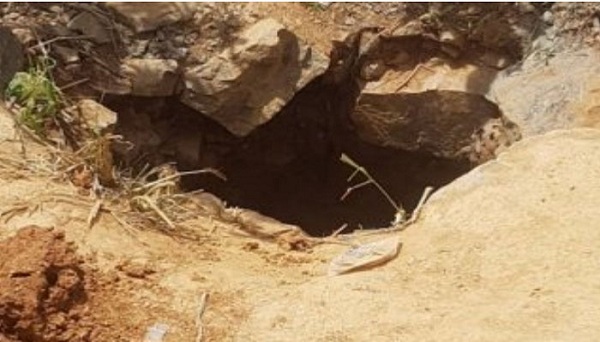More than 22 people have drowned in abandoned illegal mining pits in the Central Region over the past seven months, according to the Regional Director of the National Disaster Management Organisation (NADMO), Kwesi Dawood.
He said the deserted pits had claimed the lives of both illegal miners, commonly called galamseyers, and innocent individuals, particularly women and children with no connection to mining activities.
Describing the situation as both “alarming” and “heartbreaking,” Mr. Dawood warned that the actual figures could be higher due to underreporting.
He disclosed at a media briefing following a Regional Security Council meeting, which also launched a task force to reclaim illegal mining sites across all mining districts in the region.

The taskforce, which will operate in Assin North, Assin Central, Upper Denkyira East and West, Twifo Ati-Morkwa, Twifo Hemang Lower Denkyira, and the Komenda-Edina-Eguafo-Abrem Municipality, comprises security agencies, NADMO, Metropolitan, Municipal and District Assemblies, the Environmental Protection Agency, the Minerals Commission, miners, and the media.
Mr. Dawood said the initiative aimed to address the environmental destruction and safety hazards caused by illegal mining.
It also forms part of the government’s broader plan to convert degraded galamsey sites into productive agricultural land and tree plantations — a project spearheaded by the Regional Minister, Mr. Ekow Payin Okyere Eduamoah.
As part of the effort, heavy machinery has been deployed, while free crop seedlings will be distributed to communities to encourage planting on reclaimed lands, thereby providing alternative livelihoods.
“This initiative includes implementing our ‘Tree for Life’ reforestation policy, aimed at cultivating cash crops such as cocoa, palm and rubber on rehabilitated sites,” he explained.
Mr. Dawood urged illegal miners to abandon their harmful activities and join the reclamation drive to restore farmlands and protect national food security.
Representing the Regional Minister, Mr. Abdullah Amoh called on miners to support the initiative as community engagement and mapping of degraded areas continue.
He stressed that reclaiming sites through reforestation, soil rehabilitation, and water purification would restore natural habitats and secure livelihoods for communities dependent on healthy ecosystems.
He added that the projects would help reduce flooding risks, water contamination, and health problems linked to toxic exposure.
Mr. Amoh assured that the government would strengthen enforcement against illegal mining, allocate resources for sustainable land restoration, and roll out public awareness campaigns to discourage galamsey while encouraging community participation in environmental protection.
He underscored the government’s commitment, stating: “Addressing the aftermath of illegal mining is vital for ecological balance, economic sustainability and the well-being of present and future generations. Without coordinated action to reclaim degraded sites, the environmental and social costs will continue to rise.”
GNA





